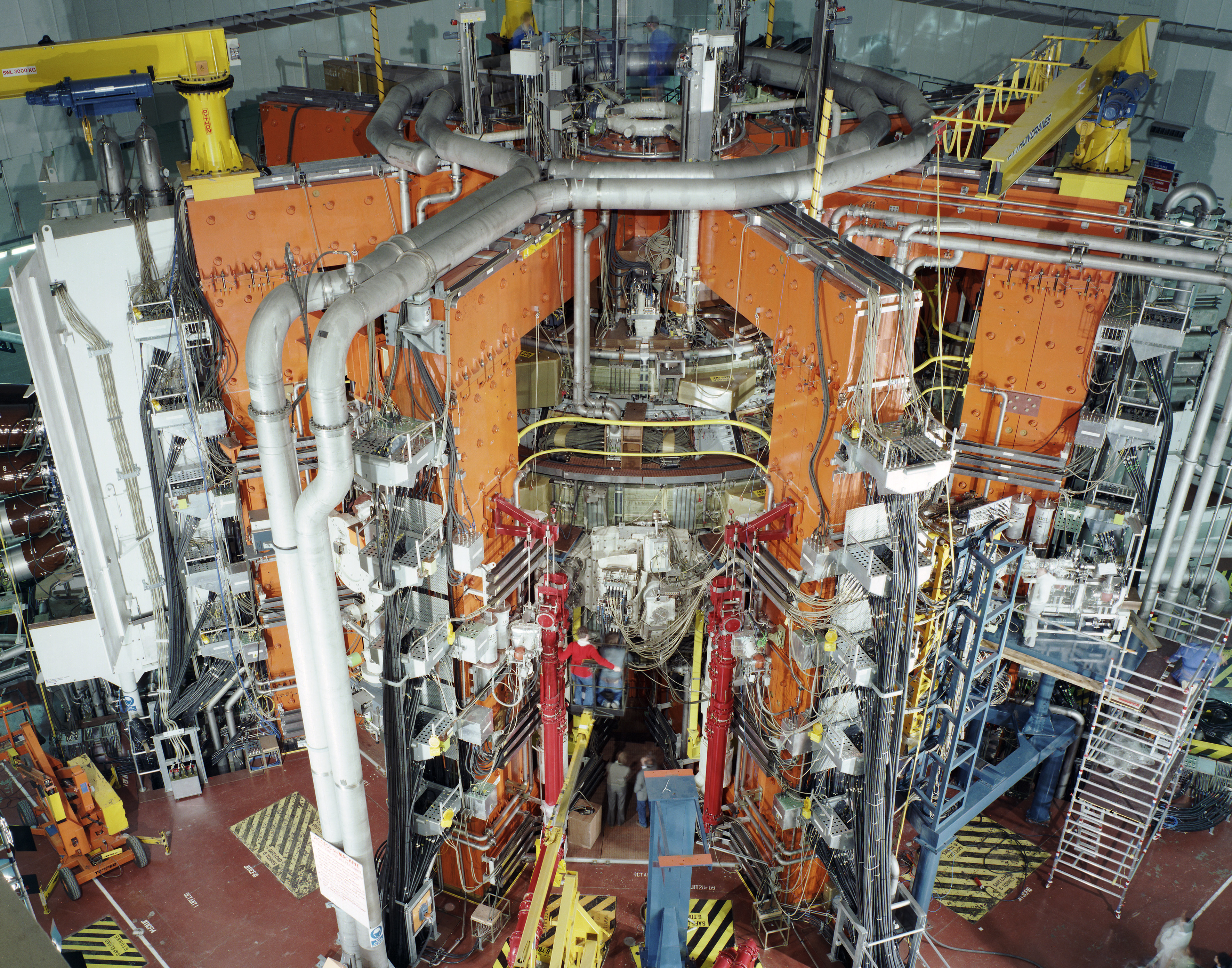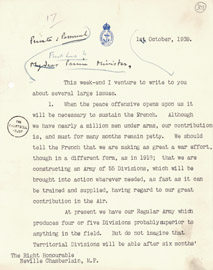|
John D. Lawson (scientist)
John David Lawson FRS (4 April 1923 – 15 January 2008) was a British engineer and physicist. Early life He was born in Coventry and educated at Wolverhampton Grammar School before going on to St John's College, Cambridge, to study for the short (two year) Mechanical Sciences degree, including a special wartime radio course. He graduated BA in 1943 and then joined the Telecommunications Research Establishment, Malvern, where he was assigned to work on microwave antenna design as part of the ongoing work on development of radar. Career At the end of the war Lawson continued to work at Malvern, although in 1947 he was made a member of the staff of the Atomic Energy Research Establishment (AERE). He undertook experimental work with the new 30 MeV synchrotron. In 1951 he was transferred to the General Physics Division of the AERE at Harwell. Lawson started to work on the klystron, a device for producing high-power microwaves, in a group led by Peter Thonemann who was a ... [...More Info...] [...Related Items...] OR: [Wikipedia] [Google] [Baidu] |
Fellow Of The Royal Society
Fellowship of the Royal Society (FRS, ForMemRS and HonFRS) is an award granted by the judges of the Royal Society of London to individuals who have made a "substantial contribution to the improvement of natural science, natural knowledge, including mathematics, engineering science, and medical science". Fellow, Fellowship of the Society, the oldest known scientific academy in continuous existence, is a significant honour. It has been awarded to many eminent scientists throughout history, including Isaac Newton (1672), Michael Faraday (1824), Charles Darwin (1839), Ernest Rutherford (1903), Srinivasa Ramanujan (1918), Albert Einstein (1921), Paul Dirac (1930), Winston Churchill (1941), Subrahmanyan Chandrasekhar (1944), Dorothy Hodgkin (1947), Alan Turing (1951), Lise Meitner (1955) and Francis Crick (1959). More recently, fellowship has been awarded to Stephen Hawking (1974), David Attenborough (1983), Tim Hunt (1991), Elizabeth Blackburn (1992), Tim Berners-Lee (2001), Venki R ... [...More Info...] [...Related Items...] OR: [Wikipedia] [Google] [Baidu] |
Fusion Power
Fusion power is a proposed form of power generation that would generate electricity by using heat from nuclear fusion, nuclear fusion reactions. In a fusion process, two lighter atomic nucleus, atomic nuclei combine to form a heavier nucleus, while releasing energy. Devices designed to harness this energy are known as fusion reactors. Research into fusion reactors began in the 1940s, but as of 2022, only one design, an Inertial confinement fusion, inertial confinement laser-driven fusion machine at the US National Ignition Facility, has conclusively produced a positive fusion energy gain factor, i.e. more power output than input. Fusion processes require fuel and a confined environment with sufficient temperature, pressure, and confinement time to create a plasma (physics), plasma in which fusion can occur. The combination of these figures that results in a power-producing system is known as the Lawson criterion. In stars, the most common fuel is hydrogen, and gravity provides ext ... [...More Info...] [...Related Items...] OR: [Wikipedia] [Google] [Baidu] |
People Educated At Wolverhampton Grammar School
A person ( : people) is a being that has certain capacities or attributes such as reason, morality, consciousness or self-consciousness, and being a part of a culturally established form of social relations such as kinship, ownership of property, or legal responsibility. The defining features of personhood and, consequently, what makes a person count as a person, differ widely among cultures and contexts. In addition to the question of personhood, of what makes a being count as a person to begin with, there are further questions about personal identity and self: both about what makes any particular person that particular person instead of another, and about what makes a person at one time the same person as they were or will be at another time despite any intervening changes. The plural form "people" is often used to refer to an entire nation or ethnic group (as in "a people"), and this was the original meaning of the word; it subsequently acquired its use as a plural form of per ... [...More Info...] [...Related Items...] OR: [Wikipedia] [Google] [Baidu] |
Fellows Of The Royal Society
Fellowship of the Royal Society (FRS, ForMemRS and HonFRS) is an award granted by the judges of the Royal Society of London to individuals who have made a "substantial contribution to the improvement of natural knowledge, including mathematics, engineering science, and medical science". Fellowship of the Society, the oldest known scientific academy in continuous existence, is a significant honour. It has been awarded to many eminent scientists throughout history, including Isaac Newton (1672), Michael Faraday (1824), Charles Darwin (1839), Ernest Rutherford (1903), Srinivasa Ramanujan (1918), Albert Einstein (1921), Paul Dirac (1930), Winston Churchill (1941), Subrahmanyan Chandrasekhar (1944), Dorothy Hodgkin (1947), Alan Turing (1951), Lise Meitner (1955) and Francis Crick (1959). More recently, fellowship has been awarded to Stephen Hawking (1974), David Attenborough (1983), Tim Hunt (1991), Elizabeth Blackburn (1992), Tim Berners-Lee (2001), Venki Ramakrishnan ... [...More Info...] [...Related Items...] OR: [Wikipedia] [Google] [Baidu] |
British Nuclear Engineers
British may refer to: Peoples, culture, and language * British people, nationals or natives of the United Kingdom, British Overseas Territories, and Crown Dependencies. ** Britishness, the British identity and common culture * British English, the English language as spoken and written in the United Kingdom or, more broadly, throughout the British Isles * Celtic Britons, an ancient ethno-linguistic group * Brittonic languages, a branch of the Insular Celtic language family (formerly called British) ** Common Brittonic, an ancient language Other uses *''Brit(ish)'', a 2018 memoir by Afua Hirsch *People or things associated with: ** Great Britain, an island ** United Kingdom, a sovereign state ** Kingdom of Great Britain (1707–1800) ** United Kingdom of Great Britain and Ireland (1801–1922) See also * Terminology of the British Isles * Alternative names for the British * English (other) * Britannic (other) * British Isles * Brit (other) * Briton (d ... [...More Info...] [...Related Items...] OR: [Wikipedia] [Google] [Baidu] |
Accelerator Physicists
Accelerator may refer to: In science and technology In computing *Download accelerator, or download manager, software dedicated to downloading *Hardware acceleration, the use of dedicated hardware to perform functions faster than a CPU **Graphics processing unit or graphics accelerator, a dedicated graphics-rendering device *** Accelerator (library), a library that allows the coding of programs for a graphics processing unit **Cryptographic accelerator, performs decrypting/encrypting *Web accelerator, a proxy server that speeds web-site access *Accelerator (Internet Explorer), a form of selection-based search * Accelerator table, specifies keyboard shortcuts for commands *Apple II accelerators, hardware devices designed to speed up an Apple II computer *PHP accelerator, speeds up software applications written in the PHP programming language * SAP BI Accelerator, speeds up online analytical processing queries * SSL/TLS accelerator, offloads public-key encryption algorithms to a ... [...More Info...] [...Related Items...] OR: [Wikipedia] [Google] [Baidu] |
People From Coventry
A person ( : people) is a being that has certain capacities or attributes such as reason, morality, consciousness or self-consciousness, and being a part of a culturally established form of social relations such as kinship, ownership of property, or legal responsibility. The defining features of personhood and, consequently, what makes a person count as a person, differ widely among cultures and contexts. In addition to the question of personhood, of what makes a being count as a person to begin with, there are further questions about personal identity and self: both about what makes any particular person that particular person instead of another, and about what makes a person at one time the same person as they were or will be at another time despite any intervening changes. The plural form "people" is often used to refer to an entire nation or ethnic group (as in "a people"), and this was the original meaning of the word; it subsequently acquired its use as a plural form of per ... [...More Info...] [...Related Items...] OR: [Wikipedia] [Google] [Baidu] |
2008 Deaths
This is a list of deaths of notable people, organised by year. New deaths articles are added to their respective month (e.g., Deaths in ) and then linked here. 2022 2021 2020 2019 2018 2017 2016 2015 2014 2013 2012 2011 2010 2009 2008 2007 2006 2005 2004 2003 2002 2001 2000 1999 1998 1997 1996 1995 1994 1993 1992 1991 1990 1989 1988 1987 See also * Lists of deaths by day The following pages, corresponding to the Gregorian calendar, list the historical events, births, deaths, and holidays and observances of the specified day of the year: Footnotes See also * Leap year * List of calendars * List of non-standard ... * Deaths by year {{DEFAULTSORT:deaths by year ... [...More Info...] [...Related Items...] OR: [Wikipedia] [Google] [Baidu] |
1923 Births
Nineteen or 19 may refer to: * 19 (number), the natural number following 18 and preceding 20 * one of the years 19 BC, AD 19, 1919, 2019 Films * ''19'' (film), a 2001 Japanese film * ''Nineteen'' (film), a 1987 science fiction film Music * 19 (band), a Japanese pop music duo Albums * ''19'' (Adele album), 2008 * ''19'', a 2003 album by Alsou * ''19'', a 2006 album by Evan Yo * ''19'', a 2018 album by MHD * ''19'', one half of the double album ''63/19'' by Kool A.D. * ''Number Nineteen'', a 1971 album by American jazz pianist Mal Waldron * ''XIX'' (EP), a 2019 EP by 1the9 Songs * "19" (song), a 1985 song by British musician Paul Hardcastle. * "Nineteen", a song by Bad4Good from the 1992 album '' Refugee'' * "Nineteen", a song by Karma to Burn from the 2001 album ''Almost Heathen''. * "Nineteen" (song), a 2007 song by American singer Billy Ray Cyrus. * "Nineteen", a song by Tegan and Sara from the 2007 album '' The Con''. * "XIX" (song), a 2014 song by Slipk ... [...More Info...] [...Related Items...] OR: [Wikipedia] [Google] [Baidu] |
Churchill Archives Centre
The Churchill Archives Centre (CAC) at Churchill College at the University of Cambridge is one of the largest repositories in the United Kingdom for the preservation and study of modern personal papers. It is best known for housing the papers of former British prime minister Winston Churchill. In addition to housing the personal papers of Churchill, the centre also houses the private papers of other notable figures, including former British prime minister Baroness Thatcher, Ernest Bevin, Enoch Powell, Lord Kinnock, Sir John Colville, Lord Hankey, Admiral Lord Fisher, Field Marshal Lord Slim, Sir John Cockcroft, Sir James Chadwick, Professor Lise Meitner, Dr Rosalind Franklin, and Sir Frank Whittle. The centre is the national and Commonwealth memorial to Winston Churchill and has been awarded designated status by the Museums, Libraries and Archives Council. The centre is open to the public. Its mission is to preserve the collections in its care for future generations an ... [...More Info...] [...Related Items...] OR: [Wikipedia] [Google] [Baidu] |
Electromagnetism
In physics, electromagnetism is an interaction that occurs between particles with electric charge. It is the second-strongest of the four fundamental interactions, after the strong force, and it is the dominant force in the interactions of atoms and molecules. Electromagnetism can be thought of as a combination of electricity and magnetism, two distinct but closely intertwined phenomena. In essence, electric forces occur between any two charged particles, causing an attraction between particles with opposite charges and repulsion between particles with the same charge, while magnetism is an interaction that occurs exclusively between ''moving'' charged particles. These two effects combine to create electromagnetic fields in the vicinity of charge particles, which can exert influence on other particles via the Lorentz force. At high energy, the weak force and electromagnetic force are unified as a single electroweak force. The electromagnetic force is responsible for many o ... [...More Info...] [...Related Items...] OR: [Wikipedia] [Google] [Baidu] |


_1938.jpg)
.jpg)

